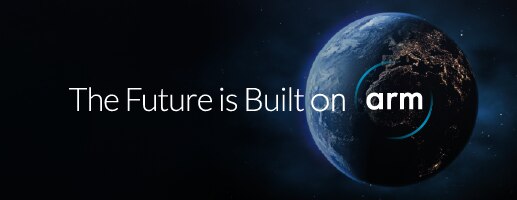Gen Arm 2Z on Changing How We Teach Computer Science
Our Gen Arm 2Z program was conceived as a way to connect young innovators with industry mentors — to highlight their stories, offer them a seat at the table, and give them even more of a platform for greatness.
Here, Josh Lowe, Gen Arm 2Z ambassador and creator of EduBlocks, chatted with Kavita Kapoor, Arm Innovator and Strategy & Executive Director at the Federation of Humanitarian Technologies, about their tech journeys, how to inspire the next generation of innovators, and the importance of open-source learning platforms.
Meet Our Gen Arm 2Z Ambassadors
Gen Arm 2Z gives a voice to the generations of tomorrow, sharing the thoughts of kids today on technology as it’s currently used and how it can be built for their future. It also gives a platform to the inspiring young trailblazers who are already hard at work defining tomorrow’s technology.
Video transcript
Josh: What got you into technology, and what are you doing today?
Kavita: My dad introduced me to computing when I was about five years old. At 12, he got me into basic programming, and frankly, it was the only thing I was good at at school. I got an A-level in it and went to university, which was great. Then the internet hit, and it was just like: I want to do this.
But I’m always fascinated. I don’t know much about your history. How did you get into it?
Josh: From a very young age, I liked technology. My first real introduction to technology was through a local event called Preston Raspberry Jam. Raspberry Jam is a global thing now, but it actually started in Preston where I’m from.
Through those events, I’ve met other people and learned about Raspberry Pi, which was my first introduction to programming in technology. That really sparked an interest — learning programs through Scratch and then going on to Python and making my own websites and that kind of thing.
Kavita: I’m really interested in knowing your journey around how you came up EduBlocks and how you chose to make that open source.
Josh: So, I started that about five years ago now, and the reason I started it was we were doing Python in school when I was learning Python myself. And I was a bit ahead of everyone else when I was learning it. I had a bit of an idea of what it was. I noticed that there was a huge gap in people’s knowledge of just basic typing skills. We live in this world of touch screens and touch devices, and Python is driven by having to use the right punctuation, capital letters, that kind of thing. I noticed that a lot of people struggled with Python, so I learned how to make a basic website and used Blockly, which is the open-source tool for the blocks that a lot of programming tools use, and I put it together with the support of some people from the Raspberry Jam events.
I released that, and it became really popular. I didn’t plan for it to become popular. But it’s grown really fast to the point today where 75,000 people use it all across the world in schools and home education. So, all sorts of different backgrounds use it. And that was my pathway to help people and to share my passion for programming and other people learning it just because I think it’s a really important thing to learn.
But the open-source thing has been quite an interesting journey. So EduBlocks has always been free, and that’s the goal — just to make it more accessible to people. I always strive to keep it that way, and the open-source element of it goes back to this whole idea of community. Open-sourcing your project allows people to contribute to it, make changes, open, pull request issues, and that kind of thing. It just opens a whole new world.
Kavita: I am always blown away by all the projects that you do — EduBlocks, micro:mag, the whole thing — and I know that you’re doing an apprenticeship at the moment, so tell me what your plans are.
Josh: I’ve spent the last six months starting again on the actual EduBlocks software. I’ve really been focusing on teacher feedback and what they’ve asked for on the platform. Through the Gen Arm 2Z program and the sponsorship that I’ve got, I managed to completely rewrite the project, and the things that I’ve been focusing on are tools for teachers.
One of the tools that will be released in a few weeks, along with the software itself, is a classroom feature. Remote learning is going to continue in some form, so I’ve developed a custom tool within EduBlocks, which allows teachers to create assignments for classes. So that’s one of the big features that we’re working on.
With the apprenticeship thing, it was a surprise because I always planned on going to college, but I wanted to get hands-on in the workplace as soon as I could. So, I’m working for a company that does fulfillment for online retailers. Obviously, that space has grown quite rapidly over the past few months. So, I’ve been able to learn how the workplace works and what it’s like to have a real job working for a real company.
Kavita: You’ve always struck me as someone who wants to get on with it and do it, and so it sounds like this is the right path for you. I’m really intrigued in your views on how we get more people into tech and how do we open up diversity?
Josh: One of the big problems that I had was how we cover technology in schools and computing in general. I think school is a really important place to start. To have a look and think: how are we teaching the topic of computer science and programming to kids now? And then when I did UTSC computer science, mine was the smallest class out of every other subject, just because, for some reason or another, it doesn’t appeal to everyone. I really wanted to see a change in the way we teach computing and computer science in schools because I think that is a really important step to open it up.
Any re-use permitted for informational and non-commercial or personal use only.











